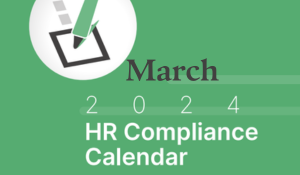As we dive into the new year, businesses must stay informed about key deadlines and compliance...
Should You Insure Ordinary Payroll?
When considering business interruption insurance, one crucial decision employers face is whether to insure ordinary payroll and, if so, for what duration. Revisiting this question periodically is essential since business needs can fluctuate based on operations, locations, and economic conditions.
Understanding Ordinary Payroll
Ordinary payroll encompasses payroll, employee benefits (if directly related to payroll), Federal Insurance Contributions Act (FICA) tax, Medicare payments, union dues, and workers’ compensation premiums for non-professional employees. This category excludes professionals, executives, department managers, and contracted employees, whose payroll is deemed a necessary expense under a business interruption policy.
How Ordinary Payroll is Treated in Business Interruption Policies
In most business interruption policies, payroll costs are treated similarly to other post-incident expenses. Necessary costs, including fundamental employee and labor costs associated with property damage repairs, are reimbursed. However, payroll for employees who are completely idled due to an incident is not considered a necessary expense and can only be reimbursed under an ordinary payroll endorsement. This endorsement typically covers a specified period, usually 30, 60, or 90 days, following the business interruption. Such an endorsement can be critical, especially for businesses needing to retain non-essential staff until operations resume fully.
The Benefits of an Ordinary Payroll Endorsement
An ordinary payroll endorsement ensures that idled employees' payroll is covered for a certain period, preventing potential issues with union contracts and helping maintain workforce stability. This endorsement does not impact the business interruption policy's coverage for necessary employees' payroll. Once the endorsement period ends, the payroll for necessary employees continues to be covered, provided proper documentation is submitted to the insurer justifying their necessity for business continuation.
Risks of Not Insuring Ordinary Payroll
Opting out of ordinary payroll insurance can reduce your insurance premium but poses significant risks. An ordinary payroll exclusion endorsement eliminates coverage for non-essential employees' payroll expenses, which can be detrimental in a catastrophic loss event. Reviewing union contracts and potential labor issues is crucial if you choose this route. Understanding the right combination of business interruption insurance for your specific needs is vital, and seeking professional advice can ensure comprehensive coverage.
Seeking Professional Guidance
Your TPG Insurance Services representative can guide you through understanding and selecting the appropriate business interruption insurance coverage tailored to your needs. Proper coverage ensures your business remains protected against unforeseen interruptions while maintaining workforce stability.
So, what do you think? Should ordinary payroll be insured? Ask a TPG Payroll & HR Specialist for more guidance by calling us at 909.466.7876 today!
Also, here's A Guide to Simplifying the Payroll Process and learn about the New Guidance on AI and FMLA Compliance found on our blogs/resources page.



